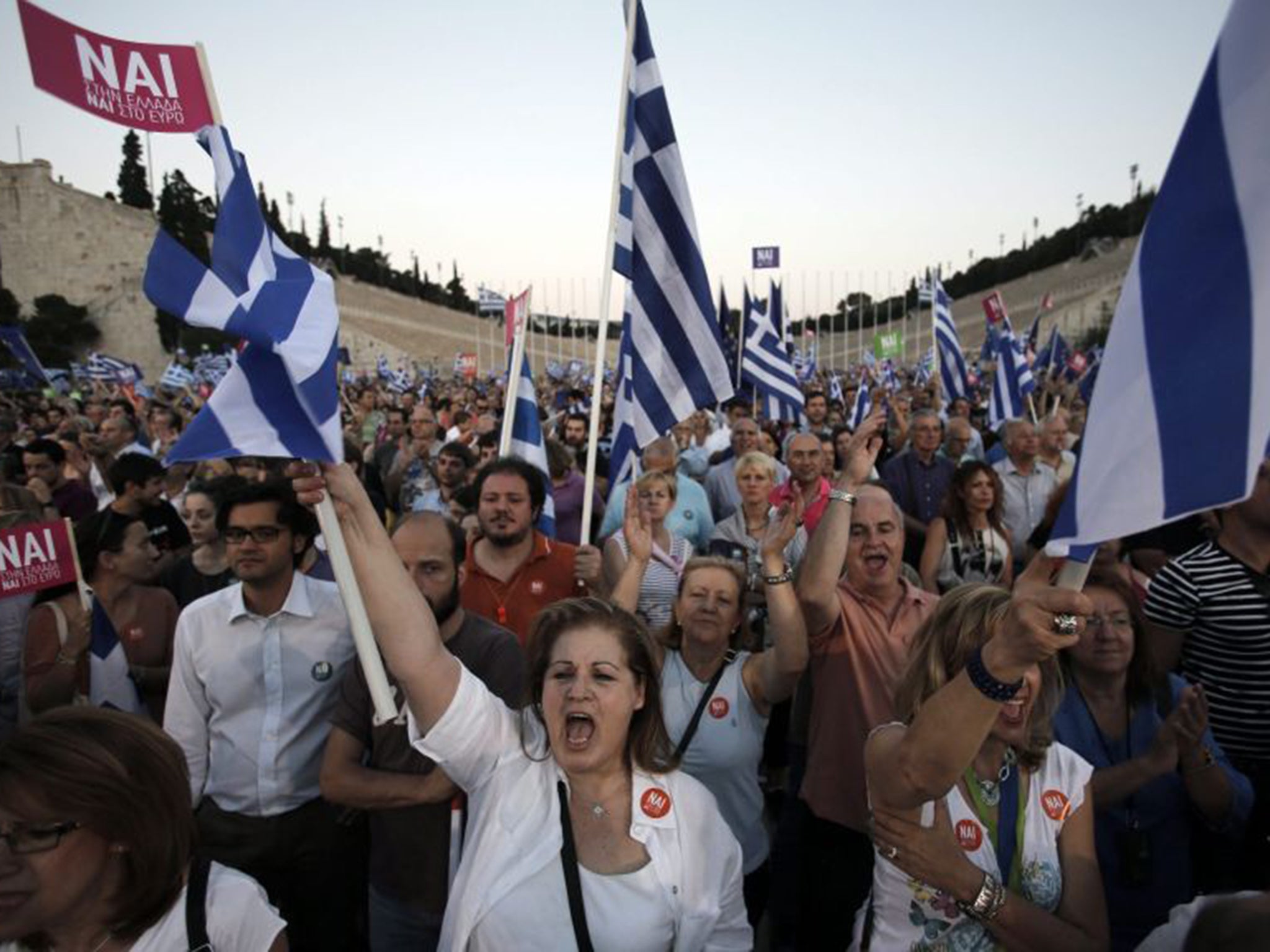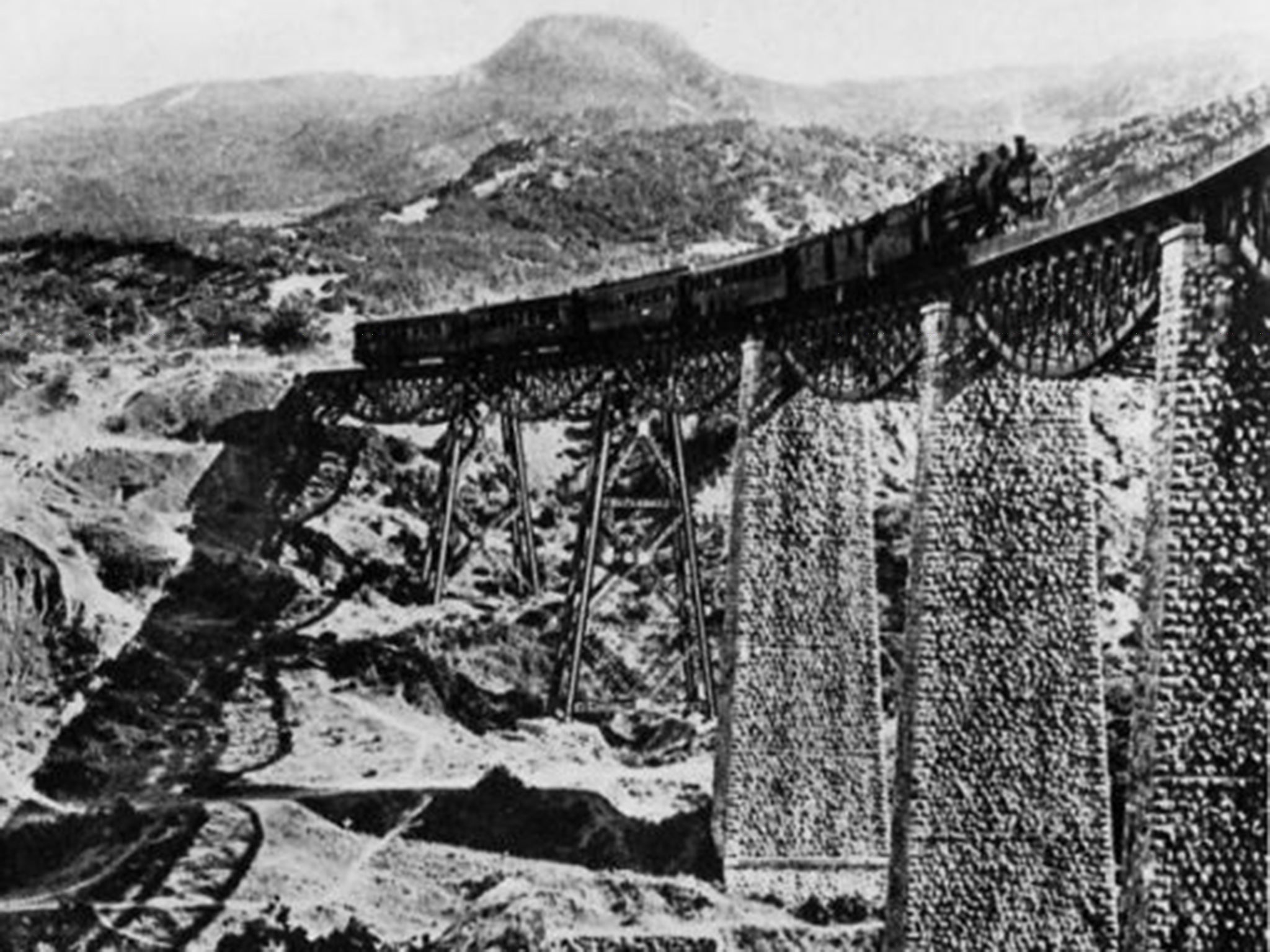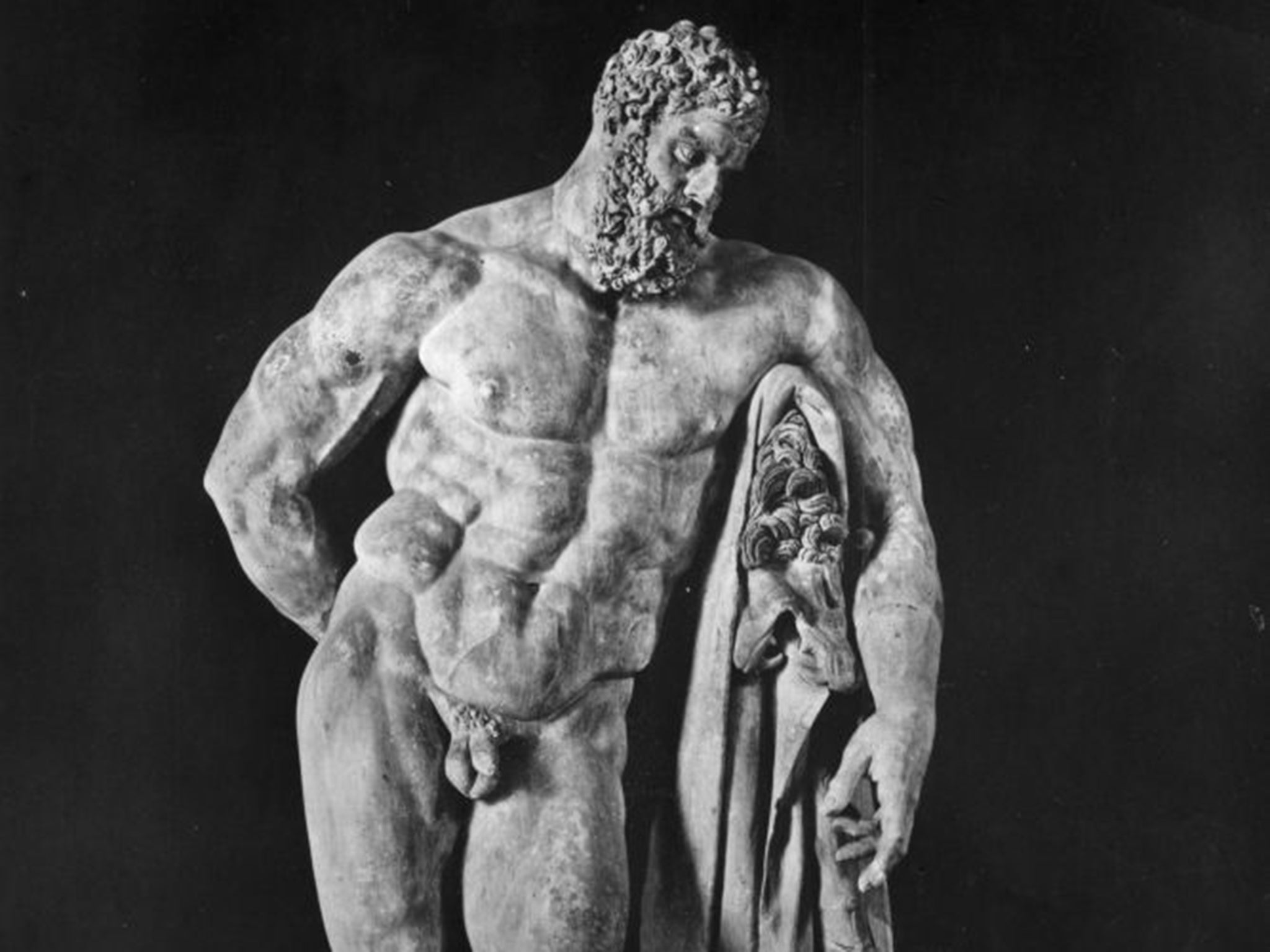Greece debt crisis: In the tiny village of Hercules frightened workers plan to vote No to the EU
In the build up to the referendum assertions are stronger than truth

It isn’t every day that you drive into a village called Hercules and ask the locals if they want to go on living in the European Union. And it’s not every day that you are asked in a coffee shop how you would vote if you were a Greek. No if you’re brave, I suggested. Yes if you’re wise.
But a white-haired man in a bright blue pullover waved his finger in my face. “Wrong!” he shouted. “To vote No you have to be brave – but you also have to have no money.” Of the 10 men, eight plan to vote No. They were agricultural workers. And they were also frightened.
Not for the first time – but certainly more suspiciously – I was asked for my identity, who I worked for, what was the name of my driver. These people were worried. Did they think I was a cop, some kind of thought police swooping down on this tiny village, some 230km north-west of Athens, near the Gorgopotamos river where – so the villagers all informed me – Hercules died. Perhaps a ghost of a not entirely forgotten civil war was making its appearance. But I’d come to Hercules to ask questions – and to find a railway bridge.

Mr Evangelis is 70 and runs a small marble factory – “we used to export to the Arab world”, he boasted, although like others he wouldn’t give his family name. He laid off his 25 workers two years ago. “Some people are afraid so they’re voting Yes and some are going to vote No because it gives our government more time to negotiate with the EU governments.” I didn’t challenge this odd assertion but in Greece right now, illusions are stronger than truth, at least if you’re poor. My driver Mattheos – he’s married to a Thessalonika hotel worker who came with us for the trip – wouldn’t agree.
Indeed, he got a good reception. “When we had drachmas, a Greek salad cost 300 drachmas which were €1,” he said. “Now it costs €5 – 1,500 drachmas. And every year since we joined the EU, we’ve got poorer. I used to earn €3,000 a month. Now I earn €1,400 (£999).”
The other men applauded. “Give me some independence,” one of them said. “Greece is a small town. People respect our history.” And so did the EU, I suppose, when it was confronted by all those Greek columns and all that mythology and forgot about more recent history –which was one reason I was passing through Hercules. That’s where the railway bridge comes into it.
The locals all knew the story of how an intrepid Englishman led Greek guerrillas up the mountain track behind the town in 1942 and blew up the iron viaduct over the Gorgopotomas river to hold up Rommel’s weapons and tank supplies which Germany was freighting through Bulgaria and Greece for shipment to Libya. Part of the bridge crashed into the river which halted all rail traffic for six weeks. But the Greeks took prisoner an Italian soldier and shot him and revenge was swift. Sixteen civilians were taken hostage and executed – a memorial to them stands close to the bridge.
“We know the story so well because we still use the same track up the hill,” another of the men in the coffee shop remarked with one of the few smiles I’ve seen in Greece. “We still call it ‘the path that the Englishman took’. So why doesn’t your country come in on our side again when we’re in trouble today?”

What none of these men knew is that the Englishman was called Christopher “Monty” Woodhouse, a senior secret agent who, in his later years and until his death in 2001, became a friend of mine. We both researched the dark past of President Kurt Waldheim of Austria together, a man of interest to Woodhouse because a 2nd Lt Waldheim of Germany’s Army Group E was drawing up reports on captured British agents, at least one of whom was murdered by the Gestapo. Waldheim was then based in Athens, the very same man who was to become UN Secretary General.
Woodhouse walked these mountains with his guerrillas for two years. And he would weep today – for he was to become one of the first British MPs to support what would become the European Union. He lived to see Greece join. He believed that Greece was a great and modern nation.
I climbed up to Monty Woodhouse’s bridge – it still carries a single track railway – and it was there that Mattheos made his most powerful remark. “I don’t know why,” he said. “But people here have become more selfish since we joined the EU. We’ve lost the Greek culture of hospitality.”
Join our commenting forum
Join thought-provoking conversations, follow other Independent readers and see their replies
Comments